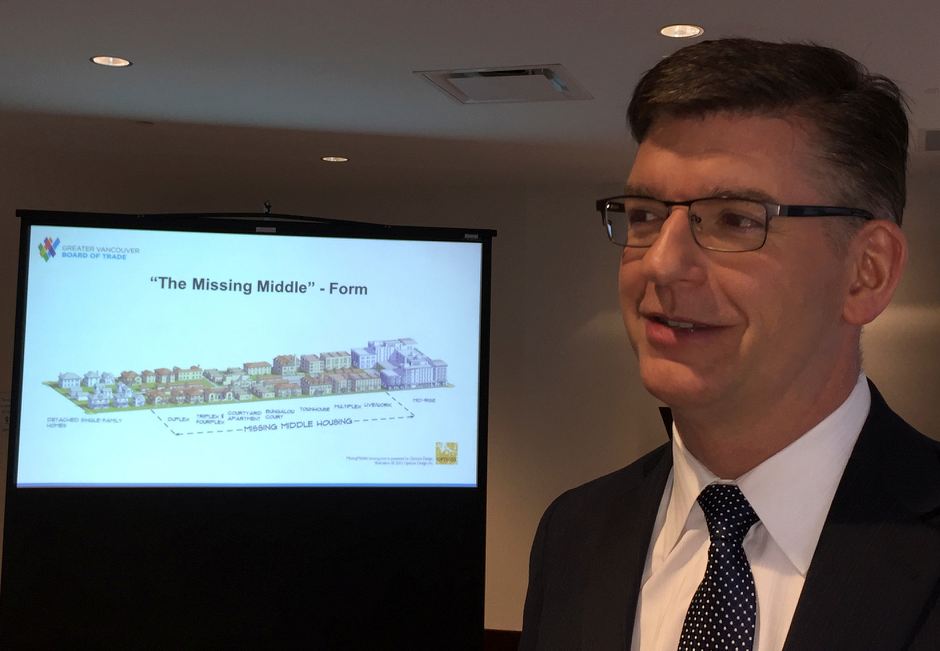Two schools of thought for how to make Vancouver housing more affordable emerged at an April 18 Greater Vancouver Board of Trade (GVBOT) housing forum.
One is for municipal governments to take bold action and eliminate all single-family zoning while encouraging more townhomes, row houses and other gradual forms of densification in those neighbourhoods; the other is to accelerate processes so that an estimated 110,000 housing units already zoned to be built across Metro Vancouver can be built as fast as possible.
Both approaches have challenges as well as strong advocates.
“Why not rezone all the single-family zoning in the whole city in one day?” asked Reliance Properties president Jon Stovell to echo an idea espoused by Tsur Somerville, senior fellow with the University of British Columbia Sauder School of Business’ Centre for Urban Economics and Real Estate.
“These are the kinds of broad bold moves that we need; otherwise we’re going to keep discussing this issue on the margin, blaming foreigners, blaming speculators [and] blaming anyone but ourselves.”
Stovell and Somerville believe that some people in Metro Vancouver have to alter expectations and live with the fact that they might never be able to buy a single-family home, particularly not one in Vancouver.
The challenge with mandating that row houses or townhomes could be built anywhere that single-family homes can currently be built is political.
“It would cause a real problem with people being upset, absolutely,” city Coun. George Affleck told Business in Vancouver.
“But we don’t need to do that. There’s enough density to meet the demand that we have in the city if we just loosen up the process for these places to be built and make it easier for smaller developers.”
GVBOT favours Affleck’s approach in its April 18 Unlocking Supply: Housing Affordability and the Missing Middle.
The report has seven recommendations that it argues need to be put in place simultaneously.
“We can give incentives to people who want to do developments around transit,” GVBOT CEO Iain Black told BIV.
“The linkage between housing affordability and transit is undeniable, so if someone is going to build a three- or four-storey condo complex near transit, put them at the head of the line.”
Other recommendations include using bonus density wherever possible and appropriate to encourage density and diversity; pre-zoning transit-oriented development during the planning process; and ending the process of negotiating community amenity contributions project by project.
Black wants to see region-wide accreditation that allows developers to be fast-tracked based on their track record of success.

(Image: Greater Vancouver Board of Trade CEO Iain Black poses for a photo after speaking with Business in Vancouver about housing affordability on April 18 | Glen Korstrom)
The suggestion to eliminate single-family zoning is not one of the GVBOT’s recommendations, but Black did not dismiss it outright.
“I’m never a guy who likes to prohibit things [such as row houses in a single-family neighbourhood] because that offends the civil libertarian side of my viewpoint,” he said. “But business people will respond to incentives, so we’re believers that the market can sort itself out if you free up the 110,000 units of housing that are currently zoned.” •




